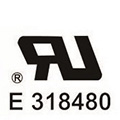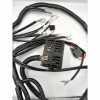Forklift cables, used in the operation of forklifts, encompass various wires and cables responsible for control, power transmission, and signal communication within the equipment. They play a critical role in providing power, controlling operations, transmitting signals, and ensuring the safe operation of the forklift. Here are several common types of forklift cables and their functions:
Power Cables: These cables supply power from the power source to various components and systems of the forklift, connecting it to the electrical system.
Control Cables: They facilitate the control of various forklift functions, such as lifting, forward/backward motion, steering, and other operational controls.
Sensor Cables: Used to connect sensors or detectors that monitor mechanical or environmental parameters such as height, weight, temperature, etc.
Communication Cables: In forklifts equipped with smart control systems or requiring communication with other equipment, communication cables might be used for data transmission.
Safety Cables: These cables connect safety devices like emergency switches, circuit breakers, etc., ensuring operator and equipment safety.
Mechanical Wiring: Cables used in the movement and lifting mechanisms of the forklift, supporting its mechanical operation and control.
Forklift cables need to adhere to relevant safety and performance standards to ensure the reliability, stability, and safety of the equipment. These cables are usually selected based on the design, specifications, and operational requirements of the forklift.












